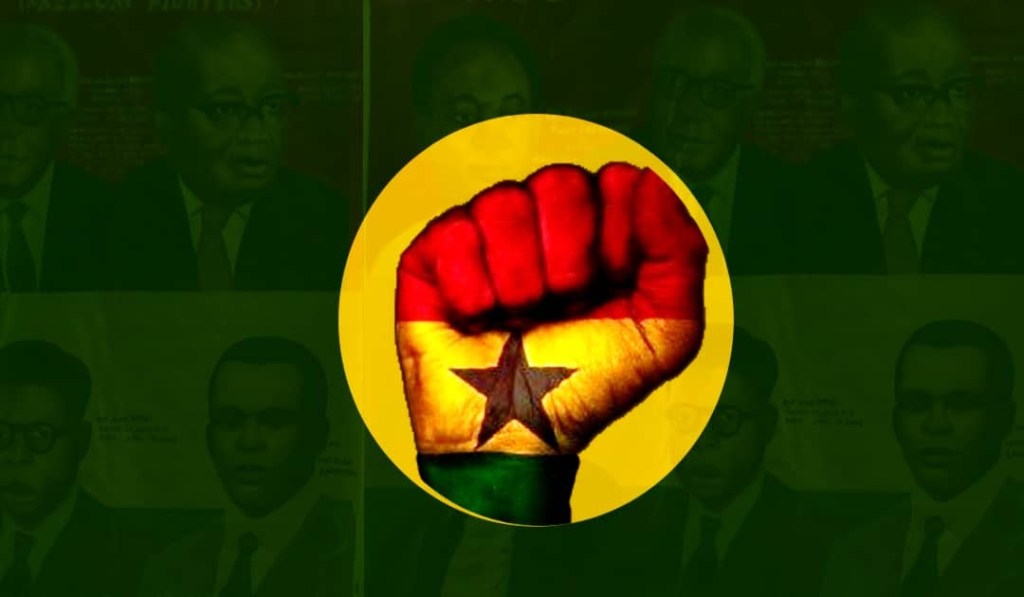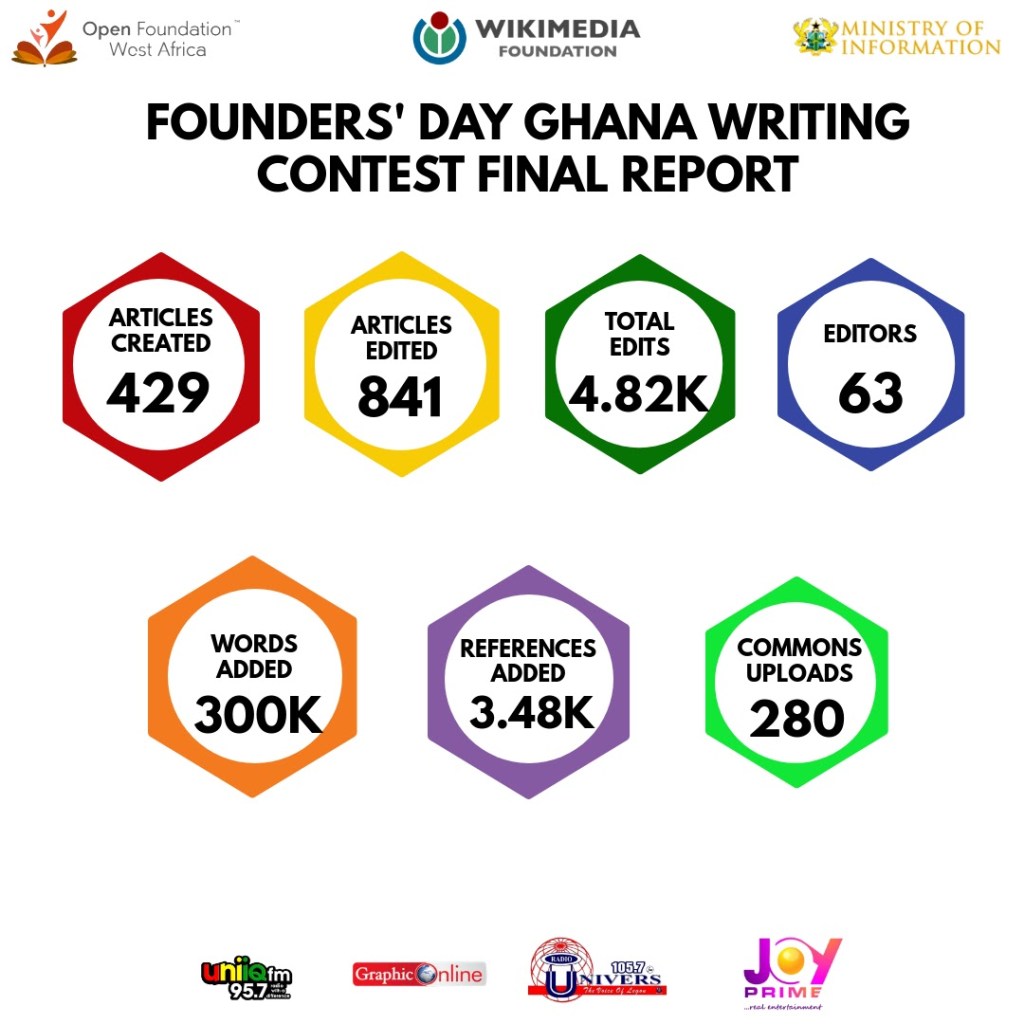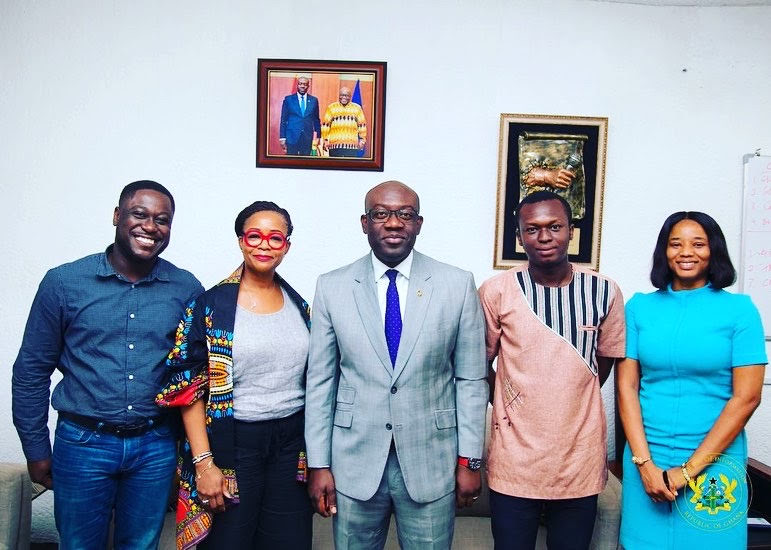
The team at Open Foundation West Africa (an affiliate of the Wikimedia Foundation in Ghana) partnered with Ghana’s Ministry of Information to launch an initiative targeted at documenting Ghanaian History, as told by the Ghanaian people. The maiden edition of the contest was successfully launched on the 18th July, 2020 in hopes of having any Ghanaian with an interest in writing, contribute to the documentation of a part of Ghana’s history.
The idea of this project had been lingering for almost a year with several deliberations on the logistics required to make it happen. The team decided that a partnership would be a comfortable vehicle of impact that also provided the needed endorsement. In November 2019, a member of our board and the COO of the Wikimedia Foundation, Janeen Uzzell, visited the Minister of Information to secure a partnership with his office. The Ministry of Information was the ideal candidate specifically because information authentication and dissemination is their mandate and their support for the project provided the needed goodwill.
Source: Ministry of Information
The vastness of the Ghanaian Independence story, provided more than enough resources, as the campaign sought to help generate and improve content about Ghana’s history – from the leaders of Ghana’s fight for independence, to significant events, prior to and after Ghana’s independence; to the contribution of the Creative Arts Industry and Media around that time period as well as other topics of national interest.
Its significance ties in with our dedication as an organization, to preserving Africa’s cultural heritage. With information accessibility in mind, the contest was a step in the direction of bridging the information gap on the internet with regards to Africa. Although a rather small step in the grand scheme of things, the contest is a vital stack in the building block that is the totality of the African story as told by its people.
The success of the project was its own reward and was partly due to our partnership with the Ministry of Information. Their position as an official government body, presented us the opportunity to tap into the vastness of their reach and influence, along with their network of connections.
With the world battling a Global Pandemic, it was important to minimise physical contact. Our heavy reliance on Social Media and Video Conferencing platforms, aided in our ability to provide adequate information to contributors and interested parties. We granted a few Television interviews for the benefit of the audiences we may have missed in our engagements online.
The project and all the circumstances around its occurrence, opened our eyes to how much could be achieved with little to no physical meetings. From juggling between hosting virtual office hours and constant social media updates, we were exposed to an entirely new way of engaging with and educating ourselves, our audiences and community.
The commendable effort put in by our amazing team, goes without saying. However, the contest exposed many challenges. Although the Internet infrastructure in Ghana is growing at a rapid rate, there still were certain challenges like service interruption which either prolonged some training sessions or made it rather difficult for participants to follow. Notably, the challenge of running online training sessions along with the problems we face as Ghanaians and for that matter, Africans, whose history is generally passed down through oral tradition, was quite glaring. The difficulty faced by many Akan translators using the Content Translation tool was off putting.
There were a few other challenges that had to do with the dashboard. For instance, the article data did not include the usernames for some of the created articles. Again, there was no separate database for Wikidata or the Wiki Incubator. Lastly, we believe the dashboard interface should also at least reflect the number of new wikidata items created.
User:Edithobayaa1 and User:Xibitgh were exceptional in their contributions to English Wikipedia. For Wikidata, User:DaSupremo was a standout contributor while User:Kwaku Berko also contributed immensely to content on Akan Wikipedia with his translation of existing articles.
Arguably, the biggest challenge was the final stage, which had a jury panel sieve through to determine the positions of contributors and ultimately the winner. The difficulty stemmed from the fact that we appreciated each and every person’s contribution and the effort they put in, whether big or small. The 6-member jury panel made up of active community members who are experienced Wikipedians and Wikimedians alike, were rather proactive in their assigned roles and helped ease the burden of such a very successful contest.
We’d like to use this opportunity to appreciate the efforts of the jury made up of the following:
- Ruby D-Brown- User:Ruby D-Brown
- Pamela Ofori – User:Pambelle12
- Joris Darlington- User:Joris Darlington Quarshie
- Stephen Dakyi-User:NanaYawBotar
- Gameli Bediako- User:Gkbediako
- Nii Amarquaye Commey- User:Cnii
At the end of the contest 429 articles were created, and 841 were improved. As many as 3480 references were added while 280 photos were uploaded on Wikimedia commons. (Kindly refer to the image below for more)

With our vision of bridging the digital information and skills gap in Africa, coupled with our commitment to preserving Africa’s cultural heritage, the only way is up. Given our dedicated team members and vibrant community, the prospects for the future are staggering and we hope to run similar campaigns in future- ones that contribute to the sum of knowledge around the countries in Africa and the African continent as a whole. Because open resources hold a great prospect in bridging the knowledge gap for the future, we are hopeful that we can cultivate a culture of free and selfless contribution to open projects and to create awareness around the benefits of these resources.
This contest has given us better insight into organizing events and harnessing the power of social media. In our journey of preserving Africa’s cultural heritage, we hope to make giant strides in order to achieve that goal and still contribute significantly to bridging the digital information gap about Africa.

Can you help us translate this article?
In order for this article to reach as many people as possible we would like your help. Can you translate this article to get the message out?
Start translation
